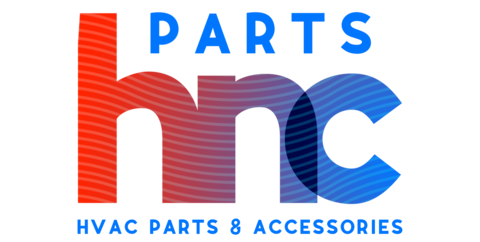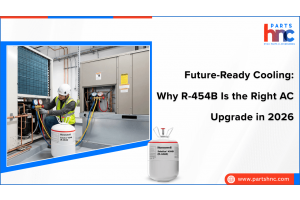From Basics to Breakthroughs: HVAC Tech for Future Professionals in 2025
The HVAC (Heating, Ventilation, and Air Conditioning) industry has long been a cornerstone of modern infrastructure, ensuring that homes, offices, schools, hospitals, and even entire cities are comfortable and safe environments. Over the years, HVAC professionals have adapted to the evolving demands of technology, environmental concerns, and consumer expectations. In 2025, HVAC technology continues to advance, presenting new opportunities, challenges, and a demand for skilled professionals. As the industry integrates more cutting-edge technologies, it is essential for future HVAC professionals to grasp both the foundational concepts and the groundbreaking innovations that are shaping the field.
The HVAC Industry: A Quick Overview
Before diving into future technologies, it's crucial to understand the foundation of the HVAC system. Essentially, HVAC technology focuses on maintaining indoor comfort by controlling temperature, humidity, and air quality. The field combines mechanical engineering, electrical systems, and environmental science to create solutions for heating, cooling, and ventilation. The industry is not only responsible for ensuring the physical comfort of building occupants but also plays a pivotal role in energy efficiency and sustainability.
The Evolving Role of HVAC Professionals
HVAC professionals have always been problem solvers, ensuring that systems run smoothly, efficiently, and within environmental regulations. As technology evolves, so does their role. The future HVAC technician is expected to be well-versed in both the basics of HVAC mechanics and the latest high-tech innovations that are transforming the industry. Professionals will need to adapt to new trends such as automation, smart home integration, and energy-efficient systems, which require a more comprehensive understanding of both hardware and software.
At PartsHnC, we offer a wide range of high-quality HVAC parts to keep your systems running smoothly. From compressors and evaporator coils to thermostats, motors, and filters, we have everything you need. Our parts are sourced from top brands, ensuring durability and efficiency. Shop with us today for fast shipping and reliable service!
Key Trends Shaping HVAC Technology in 2025
Several key trends are expected to define the HVAC industry over the next few years. Understanding these trends will be crucial for future professionals looking to stay ahead of the curve.
1. Smart HVAC Systems: The Future of Automation
The Internet of Things (IoT) is making its way into every industry, and HVAC is no exception. Smart HVAC systems, integrated with IoT devices, enable users to remotely monitor and control their heating, cooling, and ventilation systems. These systems use sensors to track temperature, humidity, and air quality, allowing adjustments based on real-time data. The result is improved energy efficiency, reduced costs, and enhanced comfort.
For HVAC professionals, this means a deep understanding of connected devices, network security, and cloud computing. Technicians will need to know how to troubleshoot, maintain, and repair these smart systems, which will require skills beyond traditional HVAC expertise.
2. Energy-Efficient HVAC Solutions
Energy efficiency has always been a key consideration in HVAC, but with the growing urgency of climate change, it has become more critical than ever. New HVAC systems are being designed with cutting-edge technologies to reduce energy consumption and carbon footprints. From advanced heat pumps to variable refrigerant flow (VRF) systems, the future of HVAC will be about minimizing energy use while maximizing comfort.
Professionals will need to be well-versed in high-efficiency equipment, advanced insulation materials, and renewable energy sources like solar or geothermal energy. As sustainability becomes a priority for businesses and homeowners alike, HVAC technicians who can offer energy-efficient solutions will be in high demand.
Also read on: The Future of Cooling: Oil-Free Chillers in 2024
3. Advanced Refrigerants: The New Standard
One of the most significant changes in HVAC technology in recent years has been the development of more environmentally friendly refrigerants. Older refrigerants like R-22 (Freon) have been phased out due to their high ozone depletion potential. New refrigerants such as R-32 and R-454B are gaining traction for their lower environmental impact and better energy performance.
Future HVAC professionals will need to be experts in these new refrigerants, understanding their properties, handling protocols, and installation techniques. Refrigerant management will be an essential part of their job, requiring specialized training and knowledge.
Check out: Eco-Cooling Made Simple: Here's How Low-GWP Units Save Energy
4. Ductless and VRF Systems: The Rise of Flexibility
Ductless mini-split systems and Variable Refrigerant Flow (VRF) systems are becoming increasingly popular due to their versatility, energy efficiency, and ease of installation. These systems are perfect for both residential and commercial applications and offer significant advantages over traditional ducted systems.
For HVAC technicians, this means learning new installation methods and maintenance practices. Ductless and VRF systems require specialized training to handle the unique components and operational characteristics of these systems. With the growing adoption of these technologies, HVAC professionals will need to expand their skill set to include these advanced systems.
5. Artificial Intelligence and Predictive Maintenance
Artificial Intelligence (AI) and machine learning are beginning to play a significant role in HVAC systems, particularly in predictive maintenance. Through AI-powered sensors and data analytics, HVAC systems can predict potential failures before they occur, allowing for proactive repairs and system adjustments. This can help extend the lifespan of the system and minimize costly downtime.
For HVAC technicians, this translates to an increased need for IT skills. Future professionals will need to understand how AI and data analytics can optimize HVAC performance and how to troubleshoot and repair AI-integrated systems. This will require a unique combination of mechanical, electrical, and computer science knowledge.
Training for the Future: What HVAC Technicians Need to Know
As HVAC technology advances, so does the need for technicians who can adapt to new systems and challenges. To succeed in the evolving HVAC field, future professionals will need to focus on the following key areas:
1. Comprehensive Education and Certification
A strong foundation in HVAC basics is essential, but it’s also important to stay updated on new trends and technologies. Many HVAC professionals pursue formal education through community colleges, technical schools, and apprenticeships. Continuing education and certifications are also crucial for staying ahead. Many organizations, such as the Air Conditioning Contractors of America (ACCA) and North American Technician Excellence (NATE), offer certification programs for various HVAC specialties.
In 2025, it will be important for HVAC professionals to focus on certifications that align with emerging technologies, including smart systems, energy efficiency, and refrigerant management.
2. Hands-On Training with New Systems
While classroom instruction is essential, hands-on experience is vital for future HVAC technicians. This is particularly true when it comes to new technologies like smart thermostats, VRF systems, and AI-driven devices. Participating in internships or apprenticeships with companies that specialize in cutting-edge HVAC systems will give technicians the practical experience they need to be successful.
3. Staying Up-to-Date with Industry Innovations
Given the rapid pace of technological advancements in HVAC, it’s essential for professionals to stay up-to-date with the latest trends. Industry conferences, webinars, and trade shows are excellent opportunities to learn about new products and systems. Networking with other professionals and engaging with online communities can also help technicians stay informed about the latest industry developments.
The Future of HVAC Careers: A Bright Outlook
The HVAC industry is growing, with increasing demand for skilled professionals in both residential and commercial sectors. The rise of energy-efficient systems, automation, and smart technologies ensures that HVAC technicians will continue to play a critical role in shaping the future of building design and environmental sustainability. In 2025, HVAC professionals will not only be expected to install and maintain systems but also to innovate and improve them using the latest technological tools.
With new opportunities come new challenges. HVAC professionals will need to adapt and evolve to meet the demands of a changing world, but those who are willing to embrace new technology and stay ahead of the curve will be positioned for long-term success in this essential and rewarding field.
FAQs
What are the essential skills HVAC technicians need in 2025?
HVAC technicians must be proficient in both mechanical systems and new technologies like smart systems, AI, and energy-efficient solutions.
How do smart HVAC systems improve energy efficiency?
Smart HVAC systems use IoT sensors to monitor and adjust temperature, humidity, and air quality, optimizing energy use and reducing costs.
What are VRF systems, and why are they important for HVAC professionals?
VRF (Variable Refrigerant Flow) systems provide flexible, energy-efficient heating and cooling solutions. HVAC professionals must learn their unique installation and maintenance needs.
What certifications should future HVAC professionals pursue?
Certifications in smart systems, energy efficiency, and refrigerant management will be essential for HVAC professionals looking to stay competitive in 2025.
How will AI impact the HVAC industry?
AI-driven predictive maintenance will allow HVAC systems to anticipate issues before they occur, requiring technicians to integrate both mechanical and IT skills in their work.
 Loyalty Program
Loyalty Program














